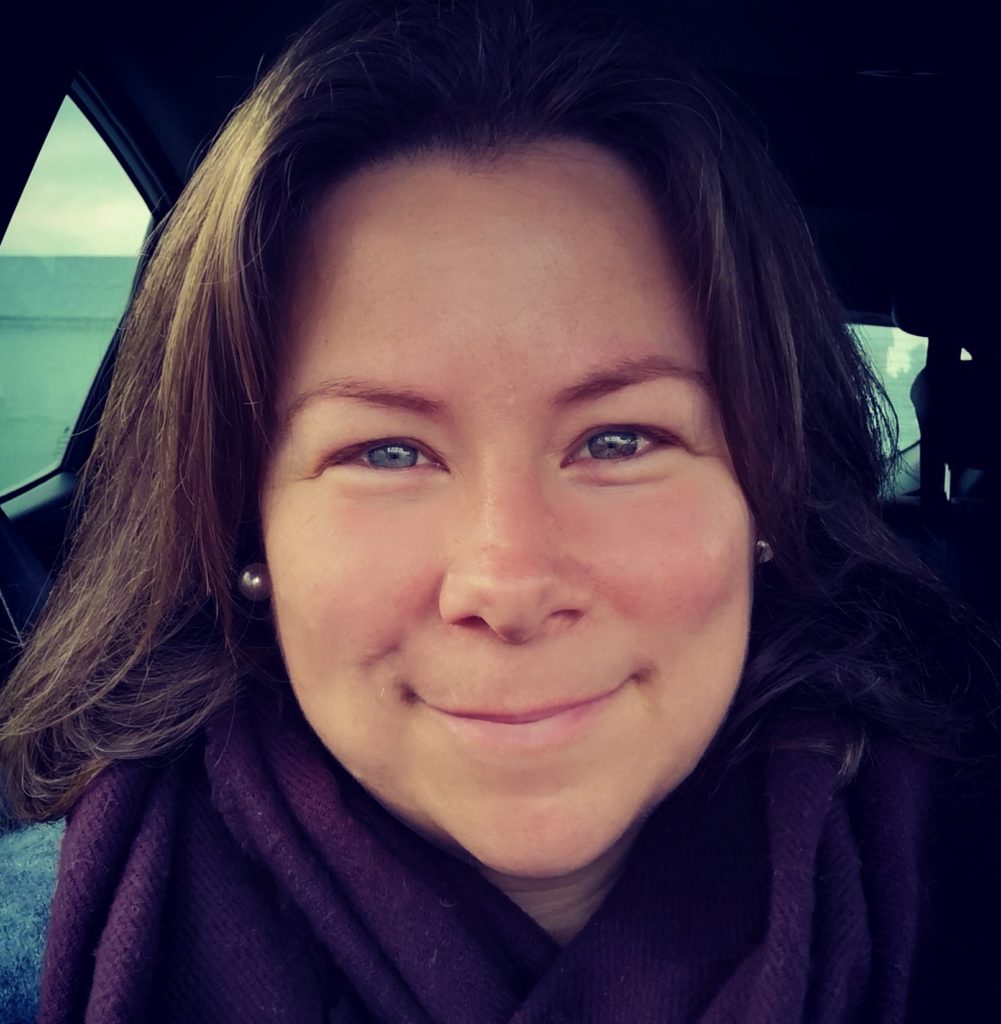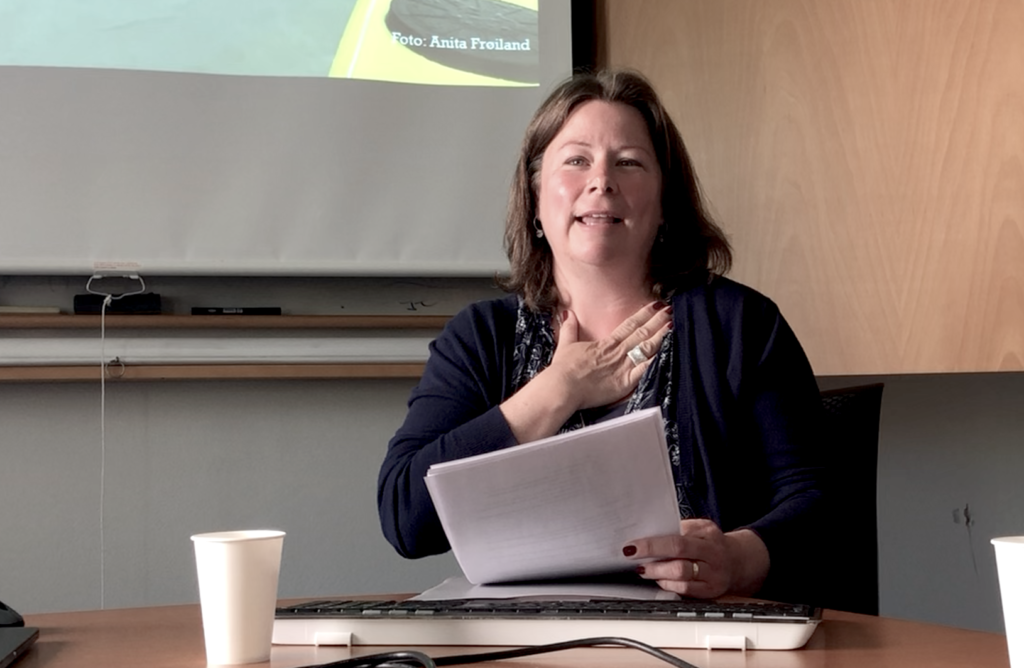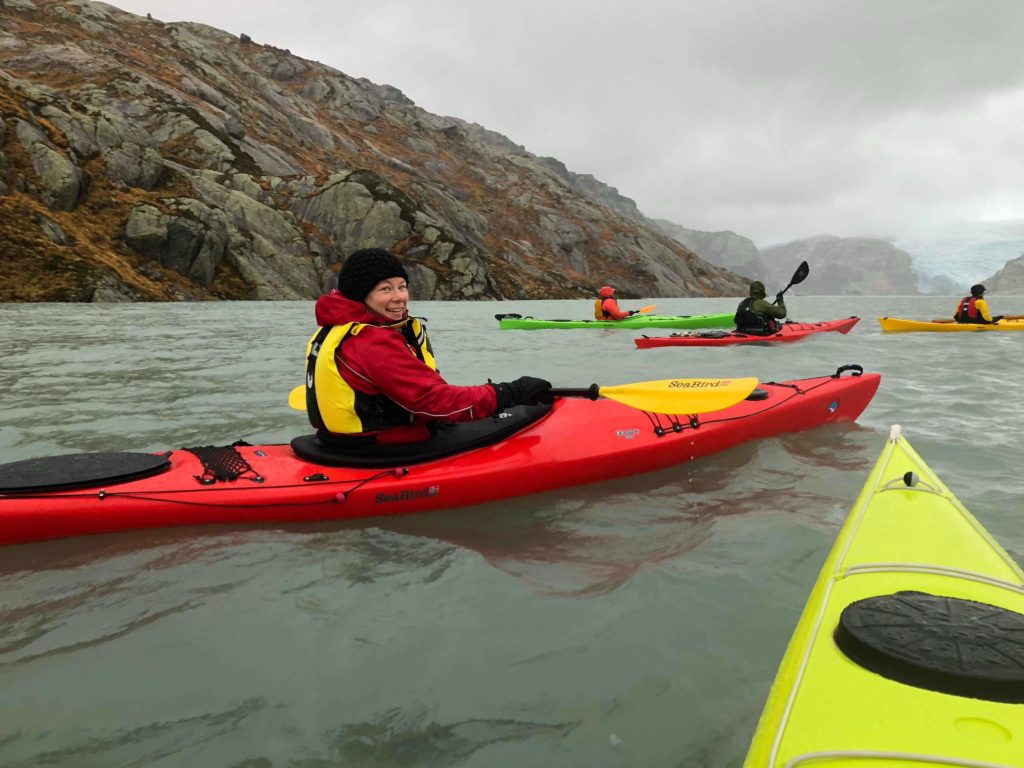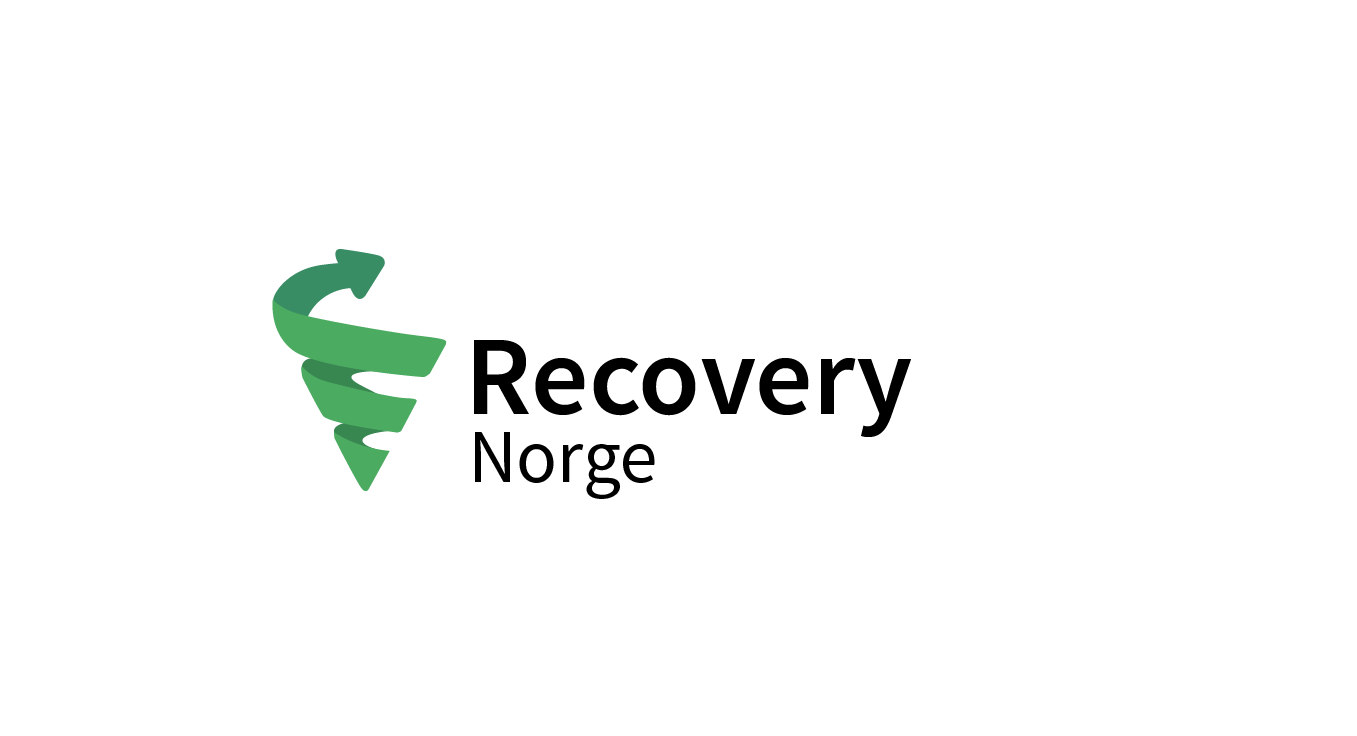Author: May Elin Game

The illness began in January 2001, triggered by hyperemesis gravidarum (extreme nausea during pregnancy), which I suffered from in all of my four pregnancies. Living with this sickness for weeks on end, night and day, only getting some respite when I was sleeping, took its toll on my body. The nausea meant I was unable to get enough food and drink, which resulted in hospitalisation and having to go on a drip for intravenous nourishment in two of my pregnancies. I also developed coeliac disease in the course of these years. The combined strain of these conditions is probably what caused my ME sickness.
Good and bad
The years when I was sick were both painful and frustrating, but there was also much that was good and rewarding. The bad bit was having to live with a body that was incapable of doing much of the things I wanted to do. It was unable to work as a nurse, or to contribute to society the way I’dwantedto. It really only wanted to rest, although resting never made me any better. It was tough, having to put my dreams and aspirations for life on hold, and to see opportunities passing me by without me being able to make use of them. It was painful to feel that I was side-lined, and sometimes I had to fight the feeling that I was less valuable than all those who were able to work and contribute. At the same time, I know that none of this was true! We are all endlessly valuable, and nothing of what we do, or do not do, can alter this fact.
I avoided contacting and looking up patient interest groups and websites related to my illness.
There was also so much good in my life; my husband and our children, my family and other people around me that gave me warmth. I also made a choice that was important for me: I avoided contacting and looking up patient interest groups and websites related to my illness. Not because I was trying to ignore the fact that I was sick, but because I wanted to focus on the good parts, the life enhancing elements, the things that made me feel better.
Unpredictable and frustrating
The intensity of my illness fluctuated; everything from very poor to fairly good. All the same, it was a very difficult condition to live with because of its unpredictability. I never knew exactly when something would be too much for me, and I’d be struck down. Nor did I know why I never became completely well again, or why sleeping or resting wasn’t helping. Waking up in the morning, having had a good night’s sleep – and yet feeling just as exhausted as I did the night before, was very frustrating. I had no idea what kept my illness going, and didn’t know what I could do to get better.
A new hope
After sixteen years, I met the mother of a teenage girl who had previously suffered from ME. She told me about MD/psychiatrist Bjarte Stubhaug and the treatment programme he has at Fitjar in Norway. Her daughter had been through this treatment with good results. I had never really looked into ME, and consequently knew very little about what treatments there might be. But now I felt there was hope! What if this could mean that I would not have to live with this illness, as a slave to my own body, for the rest of my life? What if I could actually get better? I wanted to try. I could sense the dreadful feeling of hopelessness was lifting, being replaced with a new spark of life.
I had never looked into ME, and consequently knew very little about what treatments there might be.
My first consultation with Bjarte Stubhaug felt good. He listened to me, in a warm and respectful manner. He told me about my illness, and about how I might get better. When I was offered the opportunity to come back for a four-day treatment programme, I knew at once that I had to take the chance, even though I felt it was a bit unnerving. It was unnerving because I had no idea what was ahead of me, or what it meant for my life to get better. Strange as it may sound; my life as a patient was miserable in so many ways, and I really wanted to get out of it. But at the same time it was safe and predictable. Thinking about a new life, perhaps less defined by my sickness and the possibility of many new opportunities, made it feel rather daunting – but I knew I wanted to give it a go.
Strange as it may sound; my life as a patient was miserable in so many ways, and I really wanted to get out of it. But at the same time it was safe and predictable.
Dr. Stubhaug told me that I would learn to cope with living with the illness. In retrospect I am rather pleased that he did not promise me that I would get completely well again, because this way there was less pressure. It meant I was able to relax and to take in all the lessons and therapies, and let them work within me.
Learning to understand my own body
The course at Fitjar started up in February 2018. Here, together with ten other patients I had four days of tuition which made a real impression on me. It always seemed rather strange to me that I, at the age of 44 and a trained nurse, could not understand my own body. I would never understand why I could feel fairly fine one day, and then be completely knocked out the next day. I knew that if I went for a walk I would get tired and need to rest afterwards, often for several days. However, I could not comprehend why there were days when I would become completely exhausted just from sitting still and chatting to someone, and sometimes even from not doing very much at all. There was no logic to it, nothing that was systematic or predictable. I could never foresee when I would be taken ill, what my body could tolerate or not.
I felt strange that I, at the age of 44 and a trained nurse, did not comprehend my own body.
It was a relief to learn about what happens to the body when someone suffers from ME. About how various kinds of stress in childhood, adolescence and in life generally may make you predisposed for this illness, and how various stressful and traumatic events may set it off. How the immune system gets activated and stress hormones release into the body, resulting in a multitude of physical and psychological symptoms that may knock you out. It was good to finally have the knowledge so that I could understand how this illness works. I felt that I was set free from my own ignorance and from being a slave to my own body’s unpredictability. I could finally understand why resting never made me any better, other than the fact that lying on the sofa was less unpleasant than being up and about when I was fatigued. As Dr. Stubhaug lectured us on how to control the activation trigger in the immune system, I realised that it would take more effort – that some positive action was required, not just passive rest.
It was good at last to finally get sufficient knowledge so that I could understand how this illness works. I felt I was liberating myself from ignorance and from being a slave to the unpredictable whims of my own body.
It was good to receive the tools Dr. Stubhaug said would reduce the stress in my body and thus also reduce the symptoms. The tools sounded so simple that for a moment I doubted they could have any effect. However, I was also aware that Dr. Stubhaug was a doctor and psychiatrist and that he had done a Ph.d. on the problem of ME. So I decided to be open-minded, willing to listen, to take the new knowledge on board and to try it out. This I’d decided even before I arrived at Fitjar. You can embrace something new with open eyes and an open heart, without taking leave of your senses altogether.
I decided to be open-minded, willing to listen, to take the new knowledge on board and to try it out.
The tools primarily dealt with the importance of acquiring knowledge and to accept your own situation and illness. About recognising, accepting and tolerating the symptoms. About how quality of sleep, ordinary, healthy food and calm physical activity may serve to reduce the stress levels and symptoms in body and mind. And something that turned out to be so incredibly effective and important to me, which was mindfulness and sensory exercises. About the importance of being ‘in the present’. These factors all focus on dealing with the symptoms, so that they may in fact be alleviated and sometimes even disappear altogether.
By now I had gained sufficient knowledge to understand, the will to accept and to tolerate the discomfort, and the tools to control/regulate the discomfort.

Merely picking up the courage to expose myself to some gentle, yet far more physical activities than normal was also a very important step; to never let my body or symptoms decide what I could do today, but to decide for myself. It may become unpleasant, but now I had the knowledge to understand, the will to accept and tolerate the discomfort, and the tools to control/regulate the unpleasantness.
A turn for the worse – and discovering that the methods were working
Even though I had been receiving this tuition for a few days, I had not yet implemented it all properly, or at least not discovered how powerful it could be. The second last day I became very ill. I was so exhausted and full of symptoms that I believed I would have to spend the remainder of my time there in my hotel bed, and that I would probably have to be picked up by car rather taking the bus home, as I was supposed to. I slept through the last part of the training course that day. When I got into my own hospital bed I felt devastated and started to cry. Then I was struck by the thought that I should try out the methods Dr. Stubhaug had taught me. They could not possibly make me any worse!
I picked up my phone and opened the app which Dr. Stubhaug and Hanne Suorza, the mindfulness instructor, had developed together. On it, I found an exercise called “Exhaustion”, and thought how fitting that was at this moment. I put the earplugs in and turned on the sound, listening and focusing on my breathing and senses, alternating with my physical symptoms. The whole exercise took a good thirteen minutes. Now ordinarily, if I was feeling as poorly as I did just then, I would be spending several days on the sofa trying to gather enough strength to get back on my feet again. But now, having actively dealt with my condition in this manner, I suddenly began to feel better again.
An illicit walk?
At first I thought that this could not be right. But my body suddenly felt a bit restless, like it really didn’t want to lie around in bed any more. After about an hour and a half I got up and walked about on the floor in my room, and then I got dressed and went outside for a half-hour walk. To my mind; doing this when I knew that I was actually really unwell, just seemed absolutely absurd. It was almost like I was doing something I was not allowed to. You see, the idea that I needed to rest when I felt tired was so ingrained in me, it had been drilled into my mind and body. It seemed like the only right thing to do, and I always tried to do what was right. So I almost felt like I was doing something illegal when I got up and went outside for a walk. But there was no doubt that my body not only tolerated, but in fact enjoyed, going out for a walk now. I could literally feel all the symptoms draining away from my body as I was walking.
It seemed so absurd for me to be doing this, when I knew that I was actually really unwell, that it almost felt as if I was doing something illegal.
I rejoiced that I felt better and was able to participate in the dinner and the last evening meetup, and sharing my experience with the rest of the group. The following morning I had no symptoms, and I had one very clear thought in my head: NOW, I AM WELL AGAIN! It is actually difficult for myself to understand this, and to explain it to others. How could I know this with such certainty? Occasionally I wonder if our physical bodies sometimes know things our minds cannot comprehend, because that morning when I woke up and I had no symptoms for the first time in many years, I realised that I simply ‘knew’ that the illness had left my body. And that I had been given the tools to keep it away.
A need for nature
After I came back home from Fitjar I could feel the old drive I had as a child; wanting to be outside in nature, come back with full force. I started going out every day, at first going for walks, and then I gradually took up kayaking. The important thing for me was, and still is, to get out there and just BEING surrounded by nature, and use my senses actively. Nature became the antidote of being ill. In it, you find vital and nurturing silence, and it is also full of life. There is plenty of research to document the healing and healthy effects nature has on both body and mind. I now ‘take’ my maintenance dose of nature practically every day, and I intend to keep doing so for as long as I am able.
To me, nature became the opposite of being ill. It provides vital and nurturing silence, whilst it is also full of life.

Coping with new fears
Getting well was so incredibly wonderful! I felt that I was freed from being a slave to the whims of my own body, and was now able to do exactly what I wanted. What I was not prepared for was a new type of anxiety that popped up with it. I had already been living with some sort of fear when I was sick. At that time, it was about having to live within the confines that I felt my illness and body subjected me to. My common sense at the time told me to get as much rest as possible when the symptoms came, and that this was the way to get better. That resting actually hardly ever helped, never told me anything – there were no bells telling me that other things might be more helpful. My body told me that it was tired, and I very obediently lay down on the sofa. I sometimes had a bad conscience when I was active and doing things that I knew would make me tried afterwards. My body told me to be careful and always get as much rest as possible. This tied me down quite a lot, and made me more and more unfree as the years passed and the illness persisted.
This is when I understood that if I keep facing my fears, in all areas of my life, I might eventually get on top of them.
After I came back from Fitjar, my fears mostly concerned all the novelties of getting well again. It was a bit like being a newborn, released into adulthood. For most of my adult life my role had been that of the sick person, and although this was painful there had been some safety there somehow. Now that I was suddenly well again I would have to define a new role for myself. There was one decision that I made before leaving Fitjar, though; I would never again let fear rule me. I was going to do whatever I wanted, despite being afraid. And this promise I have kept!
Since then I have been afraid many times, especially when I was trying to do new things, such as kayaking. Fear could grip me to the point of making me physically sick. Still, I noticed that as I continued to face these fears they decreased and gradually disappeared, often as I got into the kayak and started paddling. This is how I learnt that if I continue to defy fear in all areas of my life, I might begin to get the better of it. I can still feel frightened now and again, but my anxieties are much weaker now, I can deal with these much better, and I find that fear makes me a bit more alert. Which, after all, is a good thing!
Alive at last!
I’ve continued doing the things that I learnt from Dr. Stubhaug on a daily basis, as a kind of ‘maintenance’ top-up. It is important for me, not only once in a blue moon when I might feel there are some symptoms, but also on days when I feel stressed, or brooding or frightened. The sensory exercises do me good every single time – many times the symptoms fade away completely, and certainly they are always reduced, making it easier for me to stop focusing on the negativesand returning to all the good things in my life.
The night before this story was published I was at my second ever pool training with the kayaking club to do an eskimo roll. This is difficult and really heavy, so I didn’t think that I would be able to do it. But what-do-you know; I actually managed (with a little help getting back up …). And I am not telling you this just to brag, but just IMAGINE: that it is possible to spend 17 years on the sofa being ill, and then getting your LIFE back, and your strength – and lots of it, too. I feel it so strongly … Today I am aching all over, and I am incredibly happy about it. I have just learnt to master something I never even dreamt I could do!
Holding on to the good things in life and being grateful has always been important to me. The gratitude I feel that this wonderful thing has happened to me, that I have been given the gift of life once more – fills me with joy every single day. Now I am ALIVE!
